Museveni commissions Mulago Specialised Women Hospital
The President says paying scientists using international market rates will help the country stabilise its technocratic services.
HEALTH
KAMPALA - While commissioning the new Mulago Specialised Women and Neo-Natal Hospital on Tuesday, President Yoweri Museveni has asked Members of Parliament to consider paying Ugandan scientists at international rates.
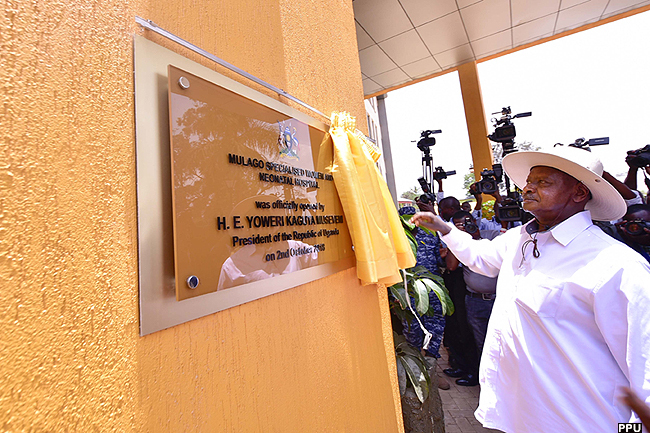
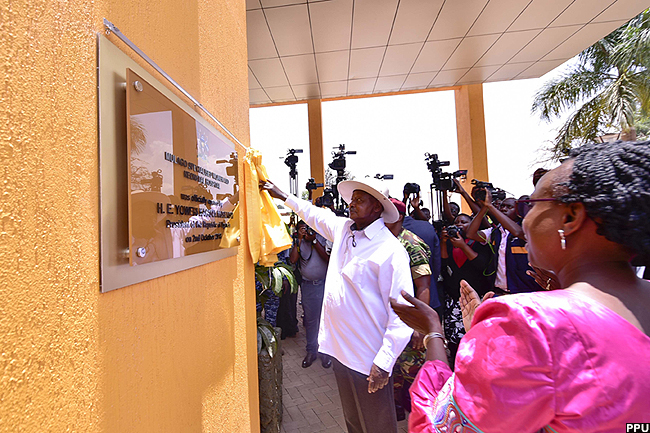
Museveni said paying scientists, including doctors, engineers, science teachers and agriculturalists using international market rates would help the country stabilise its technocratic services.
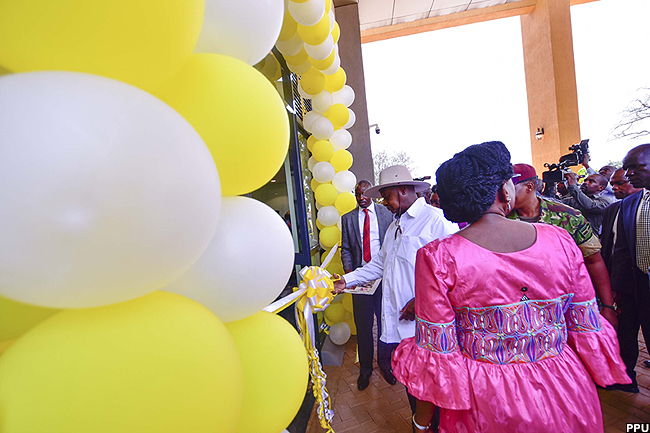
“I want you to agree to pay Ugandan scientists market rates. This has always been my position. Please differentiate the scientists from the rest of us. This talk of being equal does not work when it comes to solving some of these problems,” he said.
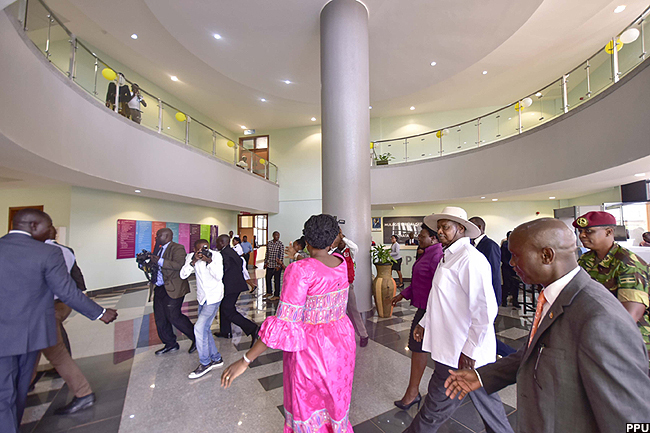
On average, a secondary school teacher earns sh600,000.
The Government unsuccessfully proposed to increase salaries for graduate science teachers from sh600,000 to sh2m and that of diploma holders to sh1.7m this financial year.
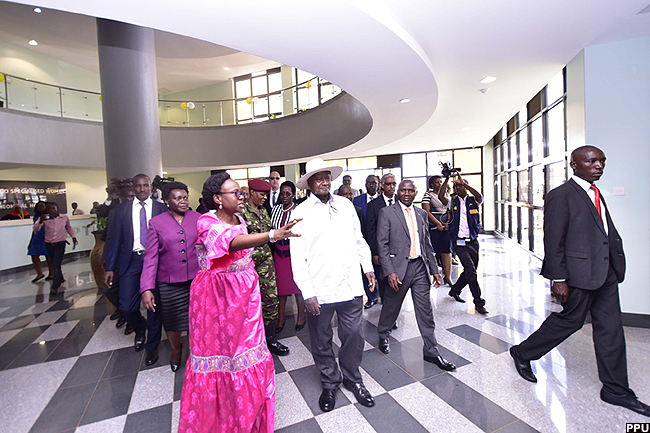
However, Museveni reiterated that since scientists in the country are not many, Parliament should be able to look into this consideration.
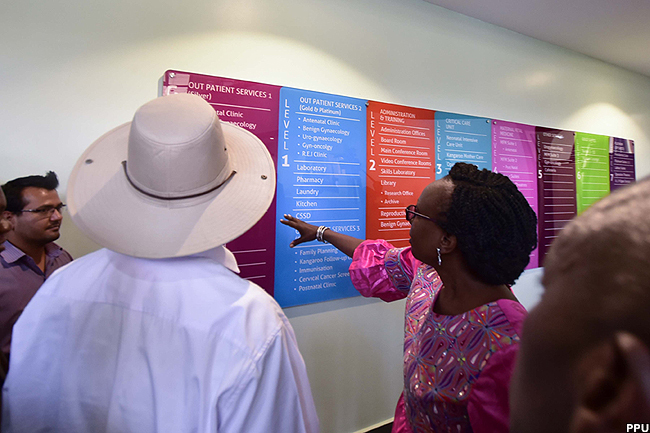
“We almost had a problem at the Soroti Flying School that was about to lead to its closure. The administrators wanted to get the same pay as that of the pilots. A pilot on a jet engine cannot be equated to a human resource person because they cannot be replaced and so are scientists,” he said.
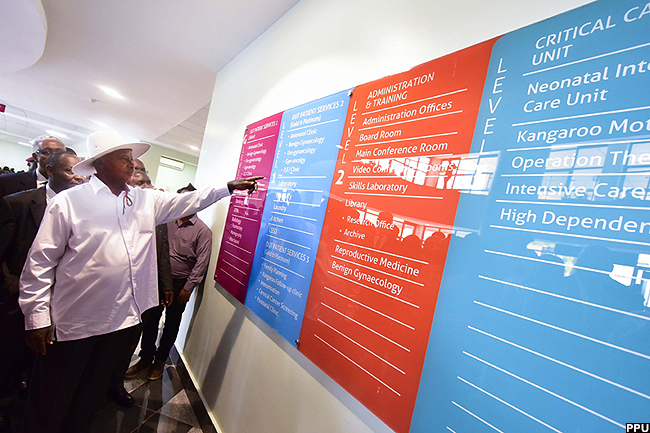
“Fortunately, scientists are not many. The Government doctors are only 2,500 and the nurses employed by the Government are 23,000. So please, let us solve this issue and let them fi rst earn and the rest of us will get later,” Museveni stated.
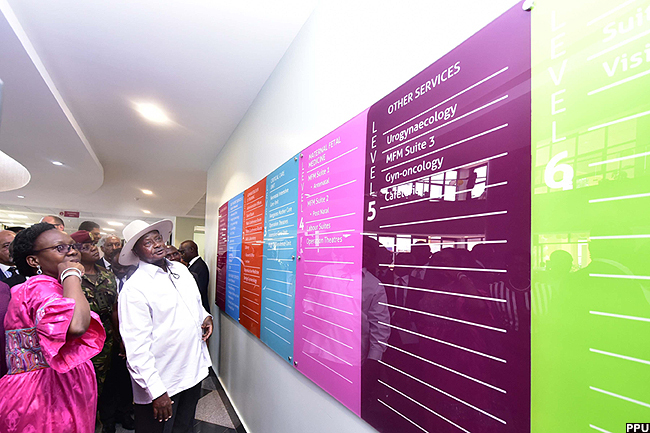
Speaking after touring the new hospital premises, Museveni emphasised the need to have it remain as a purely referral hospital.
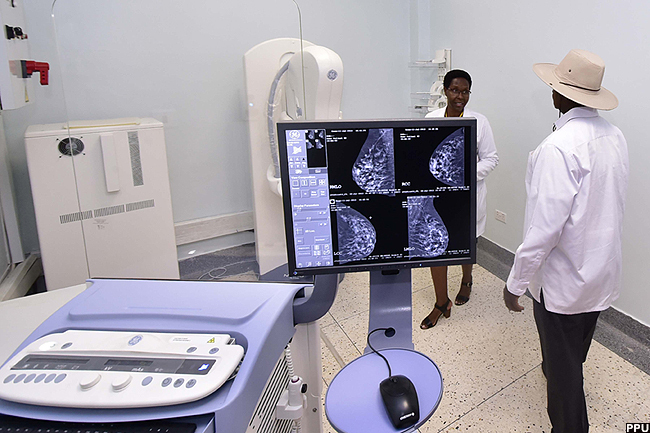
“Do not come here with diarrhoea or fever,” he said, calling on lower health facilities in villages and sub-counties to put their act together in order to scale down on referrals.
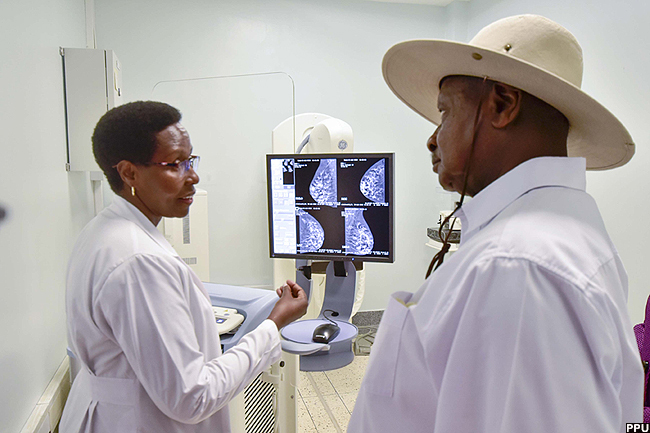
President Museveni called on health practitioners in the country to emphasise prevention as a component of healthcare.
He said a lot can be achieved through proper hygiene, nutrition, behavioural change, lifestyle and management of disease vectors such as mosquitoes that spread malaria by sleeping under treated mosquito nets.
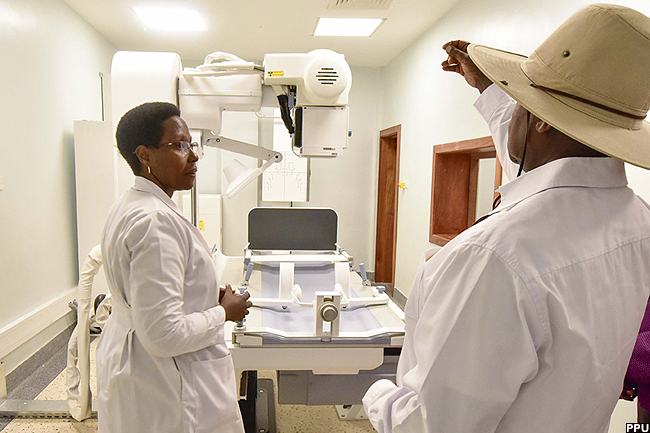
“As a strategy, let us emphasise prevention other than waiting to treat diseases. People think that healthcare is about receiving treatment but healthcare means avoiding falling sick. Health is life and when you are healthy, you can do a lot of things,” he said.
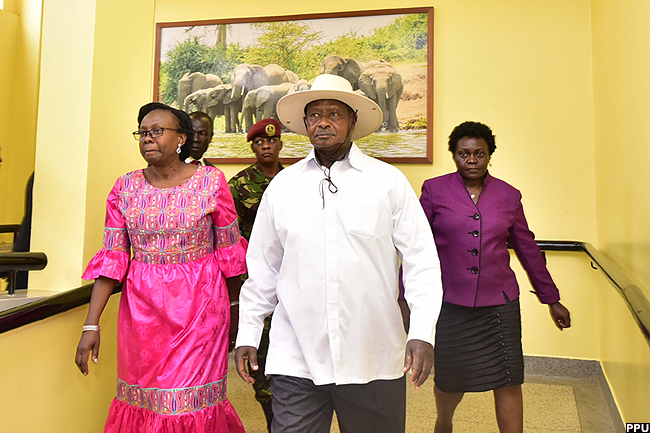
Museveni said some of the preventive measures, such as immunisation and distributing mosquito nets, among others, that have been repeatedly emphasised by the government, had paid off.
“We emphasised immunisation against the 13 killer diseases and the population of Uganda has increased since then,” he said.
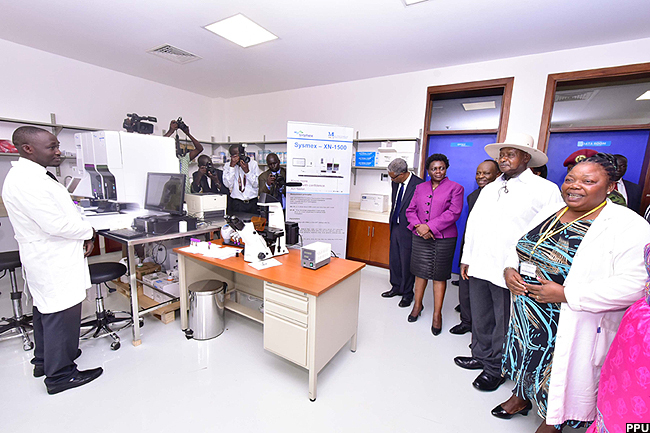
The President explained that if people put emphasis on disease prevention, it would save them from spending money in hospitals. He thanked the Islamic Development Bank for the loan used to construct the hospital, adding that the Government would continue to build more specialised hospitals around the country.
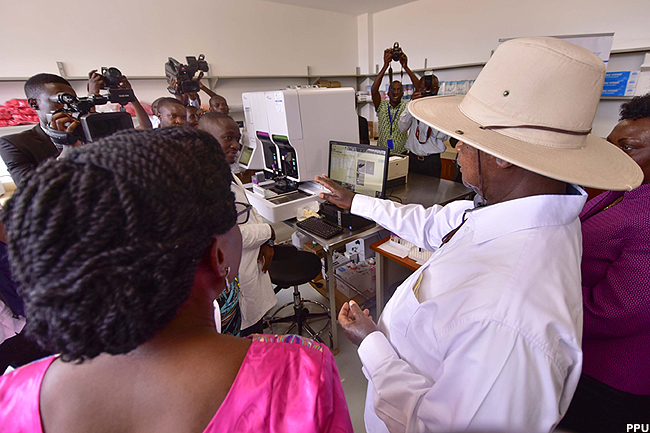
The Mulago Specialised Women and Neonatal Hospital was built to improve the quality of maternal and neonatal (newborn) healthcare services and also help decongest Mulago National Referral Hospital.
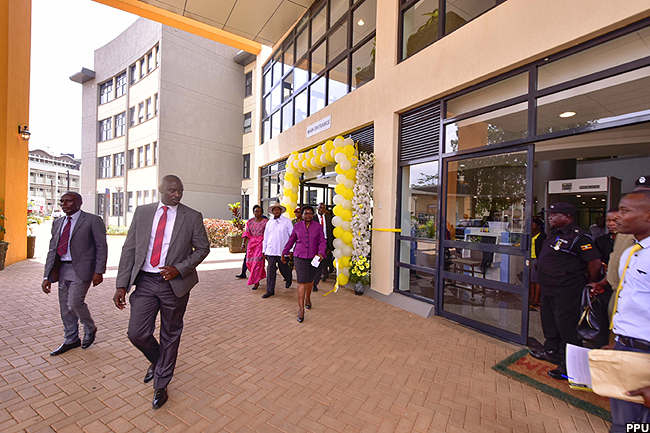
Health minister Jane Ruth Aceng said so far, 2,343 patients had been treated since the hospital was opened to the public on September 17.
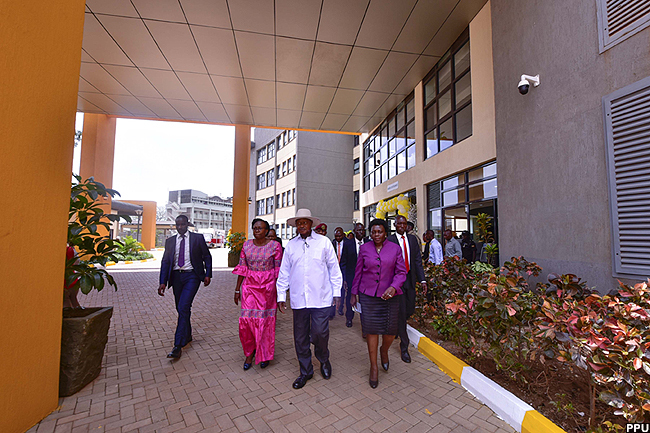
The patients include those that sought antenatal and gynaecology services, ultrasound scans, laboratory tests, as well as normal and caesarian deliveries. She said the hospital will continue to offer free services to women and newborns until October 9, as an Independence gift to the people of Uganda.
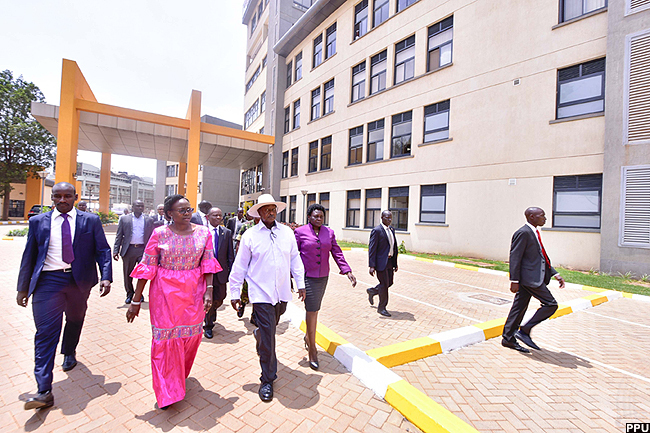
Thereafter, a modest fee will be charged. The charges that were approved by Cabinet, according to Aceng, will not only maintain the hospital equipment but also remunerate the highly specialised staff.
The hospital, with a 450-bed capacity, was completed at a cost of $25.14m, thanks to a loan from the Islamic Development Bank (IsDB).
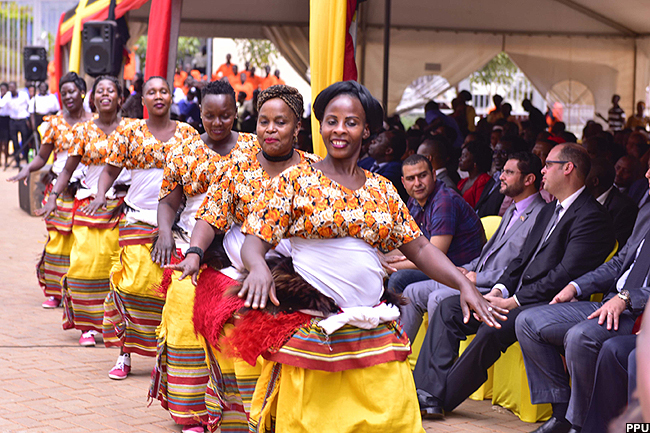
According to the Ministry of Health, all patients referred to the hospital will be expected to have referral notes and Ugandan nationals are advised to carry along their national identity cards if they are to benefit from the facility.
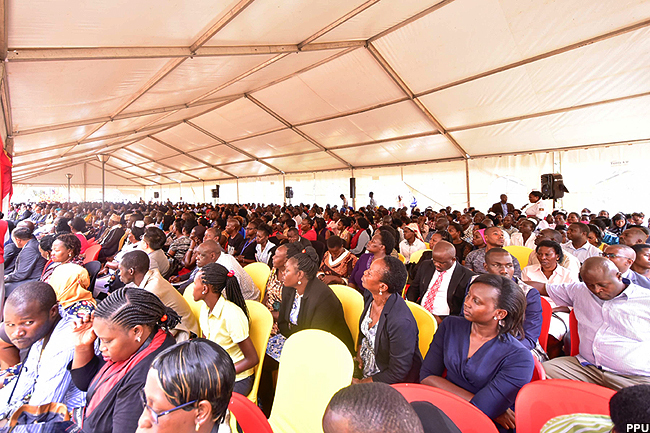
The hospital will offer the following services: high risk antenatal care, delivery, postnatal services, gynaeco-oncology, uro-gynaecology, especially focusing on obstetric fi stula (VVF), assisted reproductive health technologies, intensive care services and operation theatres offering laparoscopic surgery.
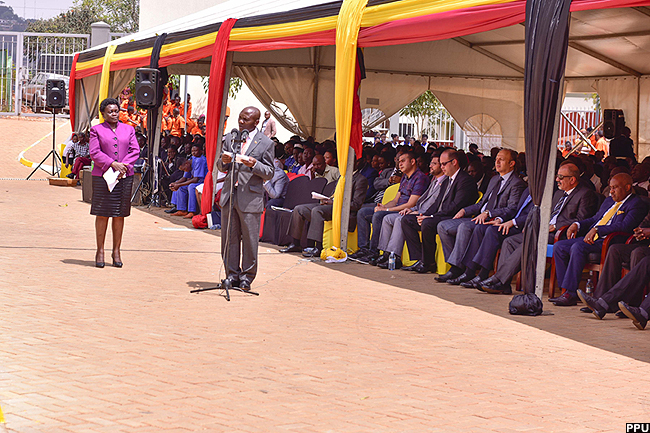
Sadik Teyeb, the IsDB operations team leader, said the state-of-the-art facility will not only enhance access to specialised treatment and improved health outcome but also contribute to health workforce development through availing the technical platform for training.
“It would be a great joy to see the facility 10 or 20 years later, as it is today. What I am alluding to is simply sustainability and maintenance. The Government should allocate an adequate operational and maintenance budget and engage disciplined and well-trained professionals to ensure the sustainability of the hospital,” Teyeb said.
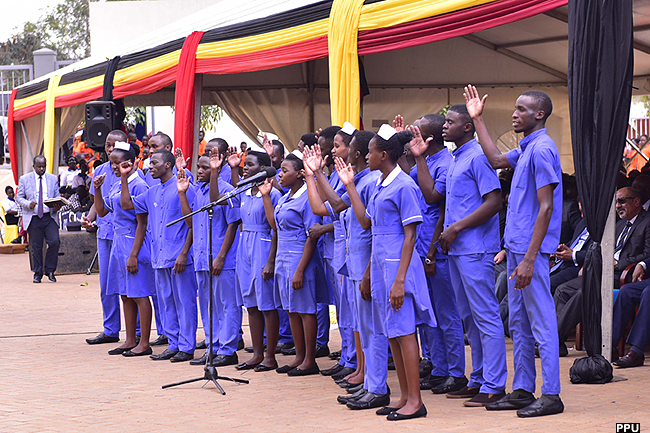
Teyeb added that the bank will continue supporting Uganda in the fi elds of infrastructure development, agricultural productivity and value addition, private sector development and human resource base and institutional capacity.
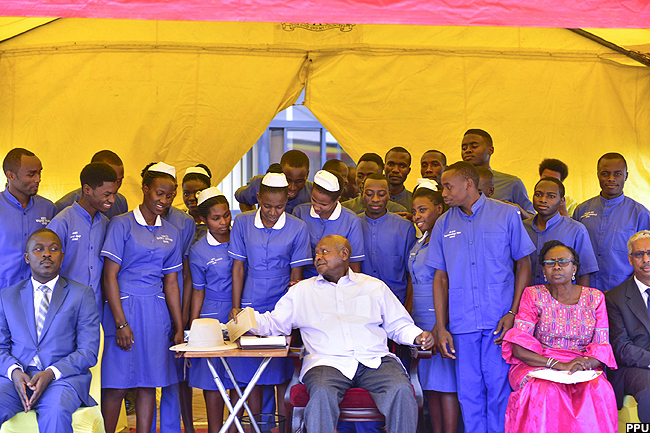
Dr Byarugaba Baterana, the executive director of Mulago Hospital, said interventions notwithstanding, Mulago continues to face a number of challenges, including a constrained budget and a lean health workforce.
“With the current patient numbers, sh14.36b is still a drop in the ocean. The optimal budget would be sh101b, leaving us with a shortfall of sh87b. Similarly, the number of health workers on the establishment is 3,075 but the actual current number on the ground is 1,870,” Byarugaba said.